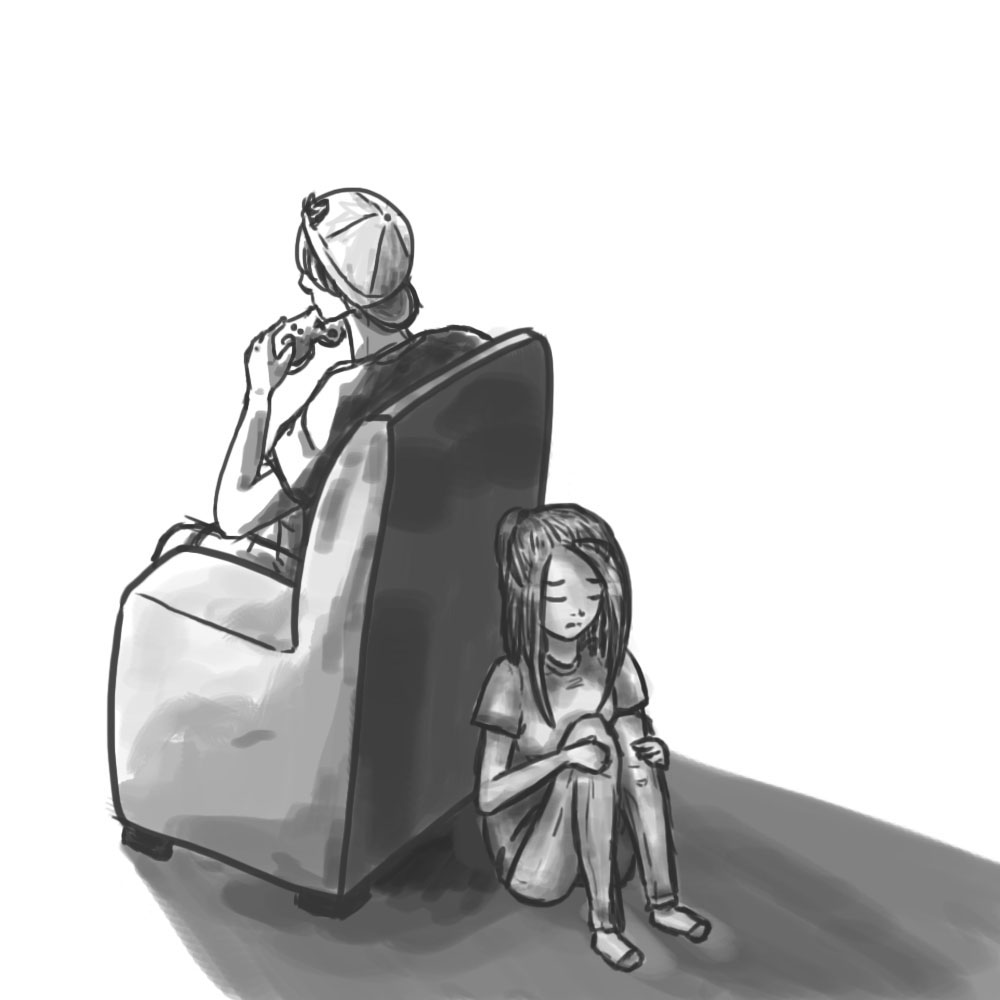
It’s a common perception that boys are more likely to play video games than girls. When you picture a typical “gamer,” you tend to imagine a teenage boy talking into a headset in his parents’ basement. But in reality, the gaming demographic is diverse; in fact, according to Pew Research Center, 48 percent of people who play video games in America are female, and most gamers are over the age of 18.
Even when my own video game addiction started around the age of nine, women in gaming always seemed so normal to me. It’s true that before middle school, I didn’t have any gamer friends to play with and had to voice chat with my brother’s friends instead. But eventually, I met lots of girls who were willing to play games with me, many of whom I am still friends with today. It was only a couple of years ago when I realized that many people didn’t share my same views about gender in gaming.
People started to say, “Oh, you play games? I didn’t know girls did that, too,” and “I don’t know; I don’t think I’d like that game since I’m a girl.” Frankly, I was puzzled. How and why would anyone think that girls wouldn’t enjoy gaming when the games were so fun?

The fact is that I love video games for their plots, characters and emotional impact. My favorite games are the ones that taught me a lesson, made me think differently or had characters that were relatable and likable. For example, the 2015 game “Undertale” conveyed a moving and poignant message about the importance of kindness and mercy in a world full of self-interested thoughtlessness. I still think about the game today when I’m tempted to overlook someone else’s needs out of convenience. To me, games are just like movies or books or TV shows, which all have purposes and stories to tell, but with games, you can be totally immersed in the experience and feel an even deeper connection. I couldn’t comprehend for a while why anyone would think you’d have to be male to enjoy a good story.
Perhaps it’s because people perceive boys as more aggressive than girls, and have a generalized idea of video games being mostly online platforms for shooting things with big guns and explosions. No fragile female could handle such violence.
I have to admit that I do fit this stereotype — violent games aren’t my favorite, as they tend to lack depth, at least for me. But that doesn’t mean this is true for all girl gamers. I have many female friends who love shooter and battle arena games just for the action and excitement, and this is, of course, completely valid. It’s a matter of personal preference, not a matter of gender.
I find the disconnect between the perception and the reality of women in gaming to be especially astounding because some people refuse to change their views, even when presented with the facts. The other day, I mentioned to a boy that about half of gamers are female, to which he responded, “You and I both know that’s not true,” and then proceeded to interrogate me about which video games I played, as though it was truly impossible that a girl could enjoy gaming and he was trying to expose me as the “fake gamer” I was.
I fundamentally dislike this assumption. I shouldn’t have to prove to others that I am a gamer by spouting a comprehensive list of every game I’ve ever touched. I don’t believe that girl gamers should be questioned in order to be sure of their authenticity as true geeks, nor do I believe that we should be venerated as rare unicorns of the gaming community. I don’t want special treatment, positive or negative, for being a girl — I just want to play games like everyone else.
My final message is a recommendation: boys, girls, whatever gender you identify as, go ahead and try gaming if you want to. Explore different genres, discover your preferences or drop it if you find out it isn’t fun – just don’t feel like your gender invalidates your interest. After all, video games are engaging experiences meant to be shared with everyone.



